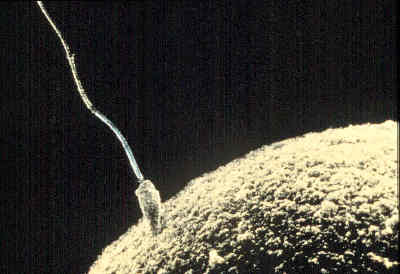Ageist as it is, older fathers are deleterious to their offspring's DNA, placing them at increased risk of mental and other  illnesses.
illnesses.
Over 60 years ago, the biologist JBS Haldane pointed out that a disproportionate number of the mutations that cause haemophilia arose on the X chromosomes daughters received from their dads compared with the genetic legacy they inherited from their mothers.
Presciently, he suggested that children inherit more mutations from their fathers than their mothers, although at the time there was no way to prove it.
Now, by sequencing the DNA of 78 Icelandic families, including both parents and their children, Kari Stefansson and his team at deCODE Genetics in Reykjavik, writing in Nature, have confirmed Haldane's conjecture.
What the deCODE scientists were looking for were changes unique to the child and absent in the parental DNA. And by distinguishing between DNA inherited from the father and DNA from the mother, they could tot up the differences attributable to each parent.
Mothers, they found, transmit on average 15 new mutations regardless of age, compared with 25 for a 20 year-old man and 65 for a forty year old. This sex-difference occurs because eggs in a woman's ovary are held in a non-dividing state having been produced before she is even born.
Sperm, on the other hand, are produced continuously by cell division throughout a man's reproductive adult life. This means that as he ages and genetic changes creep into the DNA of his sperm-producing stem cells, these are transmitted directly into his sperm at the rate of about two new mutations every year.
Consequently, men entering fatherhood later in life transmit a great mutation burden to their sons and daughters, with the risk rising in proportion to the father's age. So a 36 year old transmits twice as mutations as a twenty year old and a seventy year old 8 times as many.
That's not to say that all these mutations will be harmful; the majority will be clinically silent, but "the more mutations we pass on, the more likely that one of them is going to be deleterious," says Stefansson.
The results resonate with a rash of recent publications linking rising paternal age with developmental and neurological conditions including autism. In the US, 1 in 88 infants is diagnosed with an autism spectrum disorder, a 78% jump since 2007. Better pickup accounts for a proportion of this increase, but new mutations atrtibutable to late parenthood are also likely to be a factor...
- Previous Semen chemical triggers ovulation
- Next Lunar X-Prize Heats Up









Comments
Add a comment